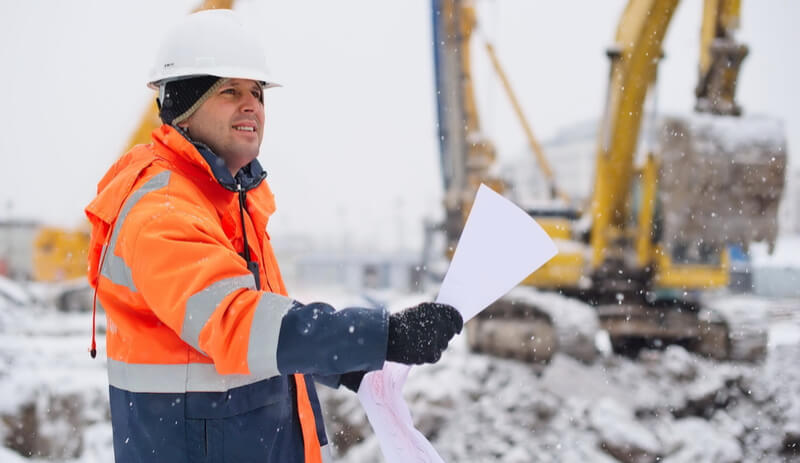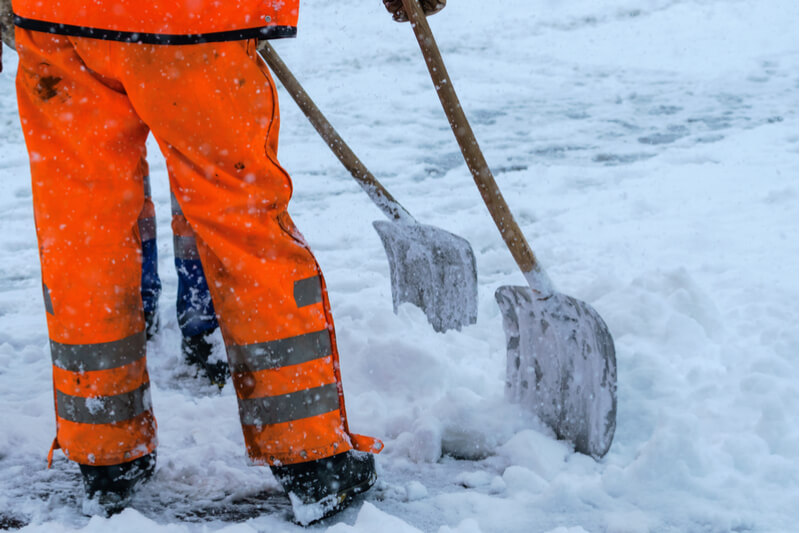How to keep your employees safe and healthy in winter

Ensuring the health and safety of your employees is important all-year-round, and we expect that it’s one of your primary concerns as a business owner. According to the
Health and Safety Executive, as an employer, it’s your legal obligation to protect the health, safety, and welfare of your employees, as well as any visitors to your premises and any other individuals that might be affected by your business.
With its colder temperatures, increased rainfall, and the higher chance of extreme weather conditions (such as strong winds, ice, and snow), the risk of having a workplace accident or catching a cold or the flu is greatly increased during this time of the year. So, it’s especially vital that you take the necessary precautions to keep your employees protected and healthy in winter!
To ensure your business is compliant with the relent Health and Safety regulations during winter, here are our top tips for safeguarding your workplace and employees…
Provide suitable protective workwear
For businesses that offer construction and industrial services, it’s essential to provide your employees with the appropriate protective workwear and personal protective equipment (PPE) to prevent illness and injury at work. For example, high visibility workwear should be provided to any members of staff working in areas with low or no light, and it should be comfortable and warm, and be able to protect them from the elements by being warm and waterproof. Not only that, but it also needs to be legally compliant.
For high visibility workwear, all garments must conform to the EN 20471 standard, which is split into 3 classes to assess an item’s level of suitability and durability. At
phs Besafe, our Bright Gear range conform to this standard, as well as the Railway Group Standard (GO/RT 3279). Our unique industrial laundering service also preserves the high visibility and waterproof properties of our high visibility items, and many of our garments have been designed to keep you warm in winter with features such as heavy-duty zips, which are reinforced with a press stud overlap to limit wind chill effect.
For maximum protection against the cold, our Soft Shell Jacket is lined with 3 layers of softshell fleece, and this ensures it’s both showerproof and windproof. This is essential for employees working outside in the winter to help protect them from the germs that cause colds and the flu (which thrive in colder temperatures).
Prevent slips and falls
According to
statistics from the Health and Safety Executive (HSE), slips and trips are the most common cause of workplace injury; in fact, they account for over a third of major accidents that occur. This is a risk that is only amplified in winter due to increased rainfall, and the higher risk of there being a build-up of ice and snow outside your building.
As an employer, it’s your responsibility to keep your employees safe and healthy, and you should take the necessary steps to protect them and members of the public from slip and trip risks in your building. Fail to do so, and you could be held accountable if an incident were to occur.
To reduce the risk of slips, trips, and falls in winter, make sure your external paths are regularly cleared of ice and snow, and that these are gritted if needed. You should also have suitable
entrance mats and matting in place to remove debris from shoes, and reduce slip risk.

Prevent colds and flu
Due to the colder weather, our immune systems are lower in winter, which makes us more susceptible to catching the common cold or the flu. Not only that, but because infection-causing germs are spread by coughing and sneezing in small enclosed spaces, the workplace is the perfect environment for colds and the flu to run rife!
Although there are no legal obligations to prevent the spread of colds and flu in the workplace, you’re still obliged to protect your employee’s welfare, and suffering with a runny nose and a sore throat can also be a buzzkill when it comes to their morale. Additionally, your company’s overall productivity will be lowered due to more sick days being taken by staff. In fact, in 2014, an average of
6.5 working days were lost per employee due to sickness absences.
One step you can take to prevent colds and flu from spreading in your workplace is by encouraging staff to wash their hands regularly by providing them with
hand sanitisers, as these can be carried with them even when they work outside of a traditional office setting. For offices and enclosed spaces, you can improve your air quality with
workplace plants.
If possible, also offer your employees the chance to have the flu jab. Although colds and flu are rife in offices due to their small size, for industrial workers that frequently come into contact with the rain and cold weather conditions, their risk of catching colds or the flu will also be considerably heightened.
For more information on how to keep your employees safe in winter (and all-year-round!) with our high visibility workwear and industrial laundering service, contact phs Besafe today.